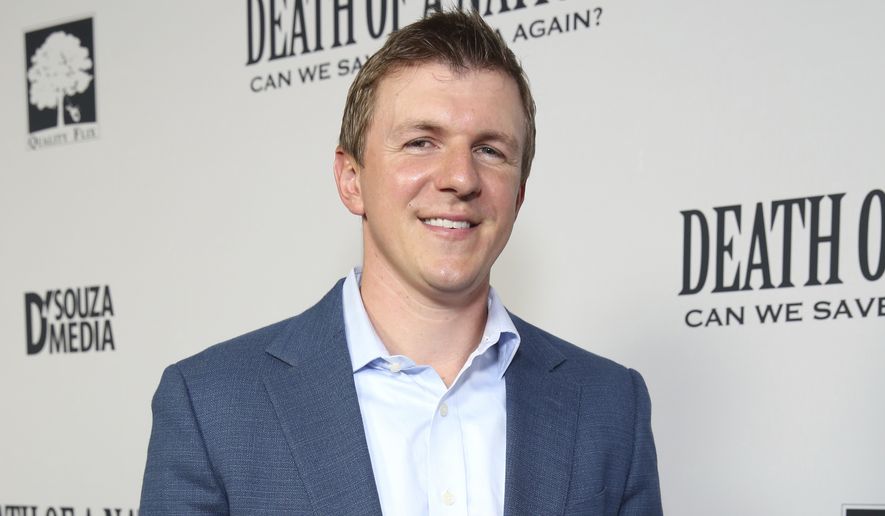A federal judge ruled Monday that Americans have a right to secretly record their public officials, including police, when they are engaged in their government duties.
U.S. District Chief Judge Patti B. Saris said a Massachusetts law banning secret recordings violates the First Amendment when it comes to government employees, rejecting the state’s claims that officials need some space to be able to operate without having to worry about being monitored.
“This is not to say that police and government officials have no privacy interests,” she wrote. “However, the diminished privacy interests of government officials performing their duties in public must be balanced by the First Amendment interest in newsgathering and information-dissemination.”
She ruled in favor of two sets of plaintiffs, one of which regularly livestreamed video of police officers performing their duties, and the other James O’Keefe, whose Project Veritas specializes in catching public policy figures saying embarrassing things.
Mr. O’Keefe called the ruling groundbreaking.
“The impact of this win will ripple throughout the nation. It will set historical precedent and keep citizen journalism alive in all fifty states,” he said in an email to supporters touting the case — and asking for money, because he predicted Massachusetts would appeal the ruling.
The state attorney general’s office did not immediately respond to a request for comment.
Massachusetts’ law, enacted in 1968, is a general ban on taping wire and oral communications, with the legislature saying it was concerned the proliferation of “modern electronic surveillance devices” was a danger to citizens’ privacy.
Judge Saris, a Clinton appointee to the federal bench, said those privacy rights are important, but said that must take a back seat when it comes to public officials, and even police officers on duty.
She said the First Amendment’s protections are particularly important “with respect to law enforcement officials who are granted so much discretion in depriving individuals of their liberties.”
The plaintiffs who shot video of police have never been charged with violating the law, but said they had refrained from some recordings for fear of running into trouble.
Likewise a Project Veritas Action witness said they wished to secretly record “a whole bunch of people” but wouldn’t do so in Massachusetts because “we can’t.”
“It’s against the law, and we don’t break the law,” the witness said.
The judge said the exchange showed “unmistakeable evidence” the state law “chilled” the plaintiff from exercising the right of free speech.
She also pointed to 11 felony cases that have been brought this decade by the Suffolk County District Attorney’s Office for violations of the law — including some that involved a police officer.
She gave the parties a month to work out language for an injunction she can issue laying out what parts of the law can’t be enforced.
Carol Rose, executive director of the American Civil Liberties Union of Massachusetts, which represented the plaintiffs who wanted to record police, said the ruling means people can keep recording devices covered and still tape police. She said that’s a big step toward accountability.
“We’ve seen that videos of police officers can show the realities of policing in powerful ways: People’s recordings of police interactions have started national conversations about police reform and accountability,” she said.
Steve Klein, one of Mr. O’Keefe’s lawyers on the case, said the court’s opinion was an important step toward striking down the law entirely.
“It’s the broadest ban of secret recording in the country,” he told The Washington Times.
• Alex Swoyer can be reached at aswoyer@washingtontimes.com.




Please read our comment policy before commenting.